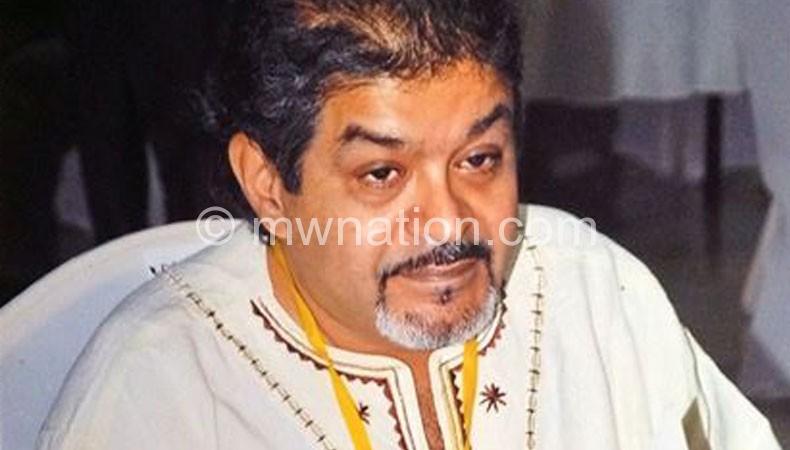Beautify the presidency
A recent study by the Department of Public Administrative and Political Studies at Chancellor College has shown that Malawians perceive the presidency as one of the corrupt institutions—more corrupt than chiefs—saying they trust teachers and religious leaders more. This could be a vote of no confidence. As Institute of Policy Interaction (IPI) executive director Rafiq Hajat argues in this interview with JAMES CHAVULA, this could be a call for President Peter Mutharika to put his house in order as some Malawians do not seem to trust the people around him.

Q
: What do you make of the public perception that 51 in 100 people in this study are saying the presidency is corrupt, more corrupt than councillors and non-governmental organisations?
A
: You must remember that the low rating that was awarded for presidential integrity is a matter of public perception. In my opinion, the public is justified. We have heard of Cashgate, Maizegate and other huge scandals. Do you really expect the public to have faith and confidence in the elected officials, including the presidency?
Q
: How important are the perceptions of corruption in the presidency?
A
: I am sure the President has a sign on his desk that says ‘the buck stops here’. He must always remember that whatever his men do reflects on the President. So, obviously, if you want a clean house then you need to use the broom.
Q
: The findings show that people do not seem to have confidence in elected
officials. Why should Malawians be worried with this trend?
A
: Corruption is a cancer, and a cancer completely destabilises and demoralises society as well as the system of governance. It retards and impedes the development of a country. We cannot move forward.”
Q
: Do you think President Mutharika is doing enough to save the presidency from this negative perception thatamong some Malawians?
A
: No. I do not.
Q
: How do you rate him?
A
There are two kinds of people. There are teachers and there are practitioners. He is a teacher. He is not a practitioner. He wants people to do what he says, not as he does what he says.
Q
: How can he save the presidency from this disgrace?
A
: I would recommend that he engages with eminent members of society: the business community, the academia and other stakeholders to form a council with broad powers to step in and correct imbalances. It should be like a think-tank. We should look at policies and implementation and where it is going wrong to be able to galvanise the requisite agencies—the Anti-Corruption Bureau, police, Malawi Communications Regulatory Authority and Malawi Energy Regulatory Authority—to do what they are empowered to do. I am not saying the council should take over, but I am saying it should galvanise existing agencies to do what they are supposed to do.
Q
: Are the civil society, the opposition and other oversight institutions doing enough in providing checks and balances?
A
: No. They can do better. They can.
Q
: Where are they getting it wrong?
A
: The civil society has been fragmented by the events of 2011. Since then, it has not really recovered. This was after the demonstrations that we had on July 20 where ring leaders like me were hounded, our offices burnt and we were put under the threat of death. Basically, we are fragmented.
But there is a very positive sign. Recently, we heard of an injunction being brought against George Chaponda and now the results are vindicating that action. I think the civil society is becoming a force to reckon with once again.
Q: One of the things coming out clear in the study is that even people at the grass-roots don’t trust the civil society as well. Why should activists care about this?
A
: Well, it is a question of integrity. You must remember in civil society, we are not there for profits. We are there as vocation, a calling. We are there to serve and do justice. The only thing we have is integrity and credibility. If you don’t have that then you have got no reason to exist. n





